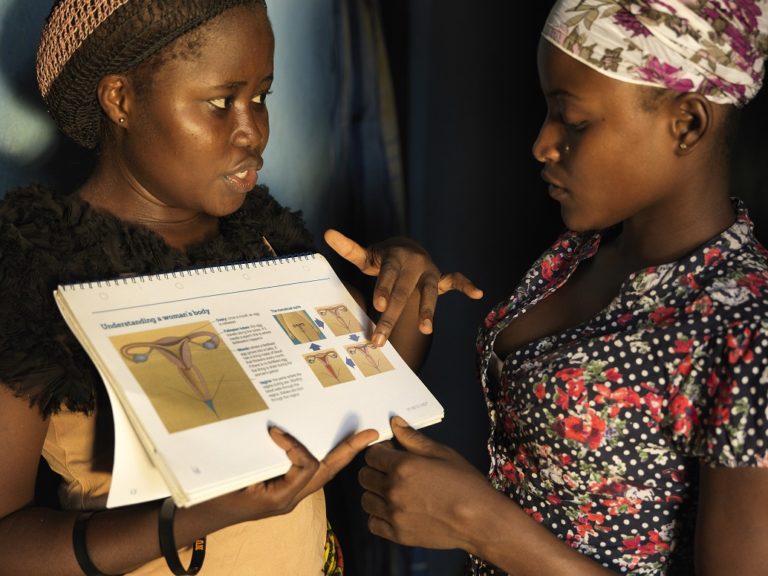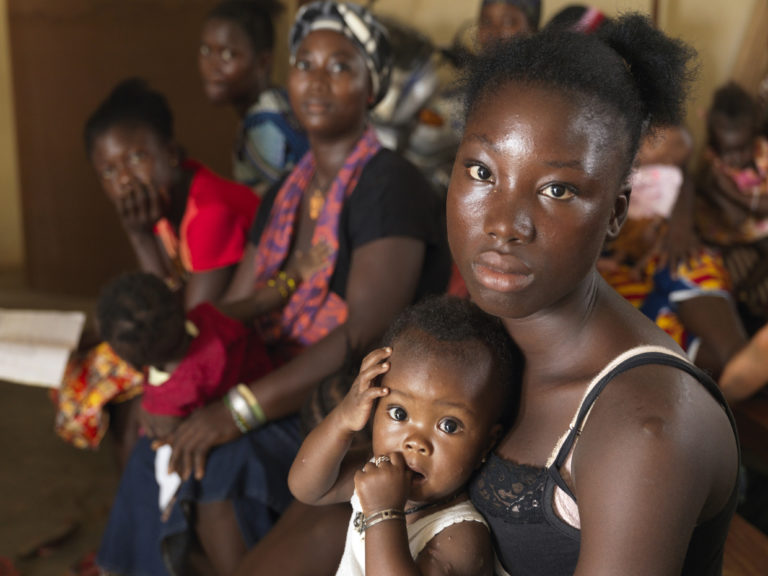
Photo Credit: Marie Stopes International / Peter Caton
As a young woman growing up in Sweden I took many things for granted. I never once questioned my unequivocal right to be treated fairly, my access to free and equal education and not least the autonomy to choose my own future. At age 15, my perspective was shaken to the core when I became pregnant. I was ashamed, embarrassed, and terrified of what this meant for my life and for my future. So I made a decision. To this day, this is still the most important and life changing decision I have ever made.
Around the world, millions of girls that like me have experienced an early and unintended pregnancy. In fact, every year an estimated 21 million girls aged 15 to 19 years, and 2 million girls aged under 15 years become pregnant in developing regions. But unlike many of these adolescent girls, I had a choice where they do not. I could safely terminate the pregnancy and immediately insert a contraceptive implant to protect myself from further pregnancies. I could complete my education, go to university and find a job working to help other women have the same choice I did.
For millions of women, contraceptives and safe abortion are either not available or of such poor quality that women and girls have little choice but to have a child they don’t want or cannot support. For adolescent girls, an unintended pregnancy can have a detrimental effect on the rest of her life. It can impact her health, her access to education, her economic opportunities, and in general the autonomy to make decisions about her own life. Globally, “schoolgirl pregnancy” is cited as one of the primary barriers to girls’ education and in many places, girls are forced to drop out when they become pregnant with laws and social stigma preventing them from ever returning.

Aminata Kabba
Photo Credit: Marie Stopes International/Peter Canton
Through my work with Marie Stopes International, I have encountered the stories of many young women who had to leave education and put their lives and futures on hold due to an unintended pregnancy. Aminata in Sierra Leone is one of them.
Aminata was just like any other 15-year-old. With dreams of becoming a nurse she spent her days going to school and hanging out with friends. But all that changed when she became pregnant and was forced to leave school.
“The major work I do now is to take care of my child, and fetch water to the house… I am not happy that my friends are in school while I am at home nursing a baby. I can no longer play with them because my child is always crying for me to carry her.”
Despite having to drop out of school at such a young age, Aminata is still hopeful for the future.
“Having a child at my age was a big mistake. But with contraception, I am empowered to return to school and proceed to college to achieve my dreams.”
Sadly Aminata’s fate is far from unusual. In her own close friendship group, two other girls also became pregnant aged 15 and in 2013 Sierra Leone recorded the 7th highest teenage pregnancy rate in the world, with more than a third of girls having their first baby before the age of 18. Globally, an estimated 5% to 33% of girls’ ages 15 to 24 years who drop out of school do so because of early pregnancy or marriage. The toll this takes on their income-earning potential, status in the family, and future opportunities is devastating.
But the situation is not hopeless. If organizations working in both the education and health sectors work together to reach these girls before their first pregnancy, we can help them retake control of their future.
“These are the future leaders… and if they drop out of school we will not have future leaders,” explained Matilda a nurse at Marie Stopes Sierra Leone (MSSL).
Fortunately, Marie Stopes team members have begun to witness a transition in Sierra Leone as adolescents’ consistently represent a high portion of client visits seeking access to contraception. This change is a result of a combination of community activities specifically focused on reaching school-aged girls with information and resources to increase knowledge and drive demand for sexual and reproductive health services. At the same time, nurses have worked to identify discreet locations near schools where girls can access contraceptives without stigma. Increasing both the access to and the demand for these services has proven an effective strategy for bridging the unmet need among adolescents helping more young women remain in education.
I made a decision 13 years ago. I know that I would not be where I am today -- a college graduate with a fulfilling career – without contraception, and it’s time that we work hard and work together to enable young women and girls across the world to have the same opportunity to remain in control of their fertility, education, and future.


